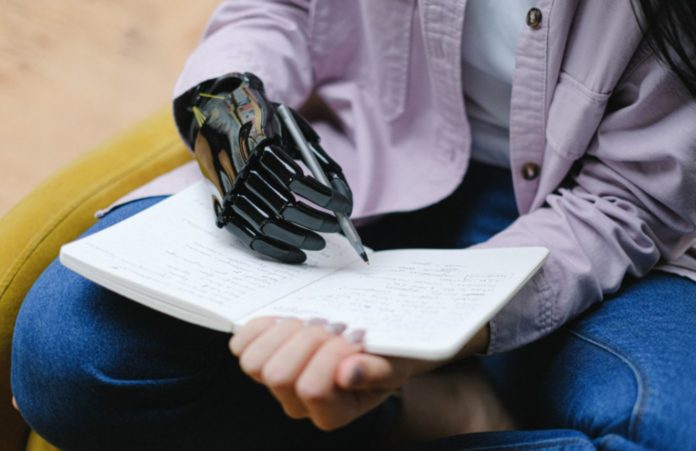New ground-breaking research to create enhanced sensors for use in robotic systems has the potential to change prostheses and robotic limbs.
The goal of the research project is to create sensors that give robots enhanced capabilities by using precise pressure sensors that provide haptic feedback. The project is led by the University of the West of Scotland (UWS), Integrated Graphene Ltd., and is funded by the Scottish Research Partnership in Engineering (SRPe) and the National Manufacturing Institute for Scotland (NMIS) Industry Doctorate Programme in Advanced Manufacturing.
Over the past few years, the robotics industry has seen remarkable advancements, but due to a lack of sensory capabilities, robotic systems frequently struggle to carry out specific tasks easily. Accurate pressure sensors that are capable of delivering more tactile ability are necessary for robots to function to their full capacity.
“Our collaboration with Integrated Graphene Ltd,” says The project’s principal investigator, Professor Des Gibson, director of the Institute of Thin Films, Sensors and Imaging at UWS, “has led to the development of advanced pressure sensor technology, which could help transform robotic systems.”
The sensors are made of 3D graphene foam, which has special properties when mechanical stress is applied. They employ a piezoresistive approach, which means that when pressure is applied, the material dynamically changes its electric resistance, making it simple to detect and adapt to the range of pressure required, from light to heavy.
“Gii, our novel 3D graphene foam, has the capability to mimic the sensitivity and feedback of human touch,” adds Marco Caffio, co-founder and Chief Scientific Officer at Integrated Graphene, “which could have a transformative impact on how robotics can be used for a whole range of real-world applications from surgery to precision manufacturing.
“We know the unique property of Gii makes it suitable for use in other applications like disease diagnostics and energy storage, so we’re always very excited to be able to demonstrate its flexibility in projects like this one.”
Within robotics and wearable electronics, the use of pressure sensors is a critical aspect, to provide either an information input system, or to give robotic systems human-like motor skills, according to Dr. Carlos Garcia Nunez. Due to its exceptional electrical, mechanical, and chemical capabilities, a cutting-edge material like 3D graphene foam provides significant potential for usage in such applications.
“Our work shines a light on the significant potential for this technology to revolutionise the robotics industry with dynamic pressure sensors.”
Image Credit: Getty
You were reading: New Advanced Sensors Can Mimic The Sensitivity And Feedback Of Human Touch
